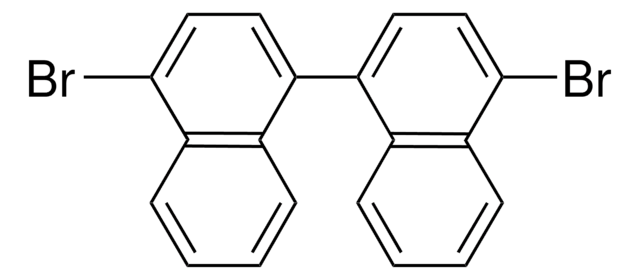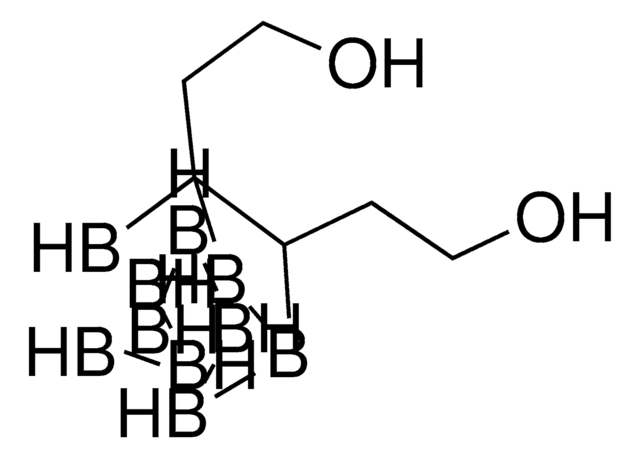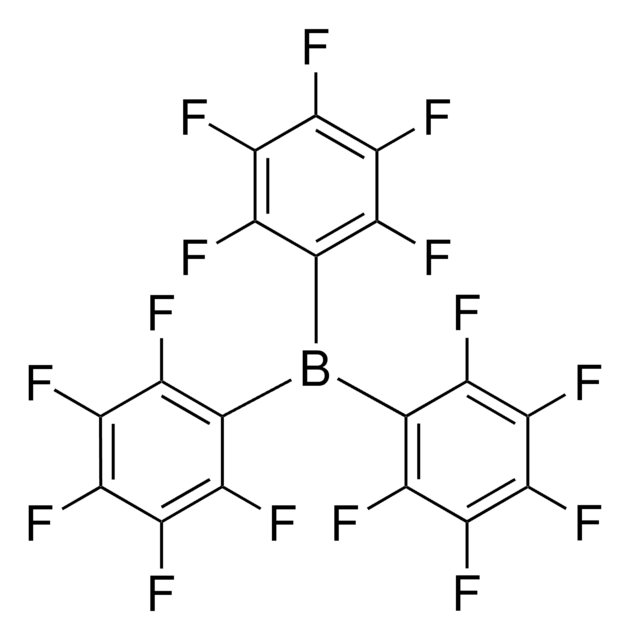288187
o-Carborane
98%
Sinónimos:
1,2-Dicarbadodecaborane(12)
Iniciar sesiónpara Ver la Fijación de precios por contrato y de la organización
About This Item
Fórmula empírica (notación de Hill):
C2H12B10
Número de CAS:
Peso molecular:
144.23
Número CE:
Número MDL:
Código UNSPSC:
12352300
ID de la sustancia en PubChem:
NACRES:
NA.23
Productos recomendados
Ensayo
98%
mp
260 °C (subl.) (lit.)
temp. de almacenamiento
2-8°C
cadena SMILES
[bH]1[bH][bH][bH][bH][bH]cc[bH][bH][bH][bH]1
InChI
1S/C2H12B10/c1-2-4-6-8-10-12-11-9-7-5-3-1/h1-12H/b2-1-
Clave InChI
PWHTZDUTEHXWHV-UPHRSURJSA-N
Categorías relacionadas
Descripción general
Electron deficient boron cage compounds with one or more carbon atoms as a ligand in the borane framework. The three common isomers are o-carborane, m-carborane and p-carborane 1The structure could be polyhedral or open cage.
Envase
Packaged in glass bottles
Palabra de señalización
Warning
Frases de peligro
Consejos de prudencia
Clasificaciones de peligro
Acute Tox. 4 Dermal - Acute Tox. 4 Inhalation - Acute Tox. 4 Oral
Código de clase de almacenamiento
11 - Combustible Solids
Clase de riesgo para el agua (WGK)
WGK 3
Punto de inflamabilidad (°F)
Not applicable
Punto de inflamabilidad (°C)
Not applicable
Equipo de protección personal
dust mask type N95 (US), Eyeshields, Gloves
Elija entre una de las versiones más recientes:
¿Ya tiene este producto?
Encuentre la documentación para los productos que ha comprado recientemente en la Biblioteca de documentos.
Yin-Ping Wang et al.
Chemistry (Weinheim an der Bergstrasse, Germany), 23(8), 1814-1819 (2016-11-30)
Palladium(II)-induced selective B(4)-H activation of an o-carboranylthioamide has been developed. A tetranuclear palladium(II) complex has been obtained in high yield with excellent regioselectivity. DFT calculations have confirmed that the B(4)-borometalate is lower in energy than the corresponding B(3)-borometalate. The product
Temidayo O B Olusanya et al.
Biophysical chemistry, 247, 25-33 (2019-02-24)
Based on the promise of liposomes as convenient vehicles for the transport of boronated agents for the boron neutron capture therapy (BCNT) of cancer, this paper reports a method for the formulation and characterisation of stable o-carborane-loaded liposomes (ca. 80-100 nm)
Issei Takeuchi et al.
Colloids and surfaces. B, Biointerfaces, 159, 360-365 (2017-08-15)
Poly(DL-lactide-co-glycolide) (PLGA) has been widely used and studied because of its biocompatibility and biodegradability. Recently, the usefulness of nanoparticles using poly(L-lactide-co-glycolide) (PLLGA) having a higher glass transition temperature than PLGA was suggested. In this study, we investigated the availability of
Nuestro equipo de científicos tiene experiencia en todas las áreas de investigación: Ciencias de la vida, Ciencia de los materiales, Síntesis química, Cromatografía, Analítica y muchas otras.
Póngase en contacto con el Servicio técnico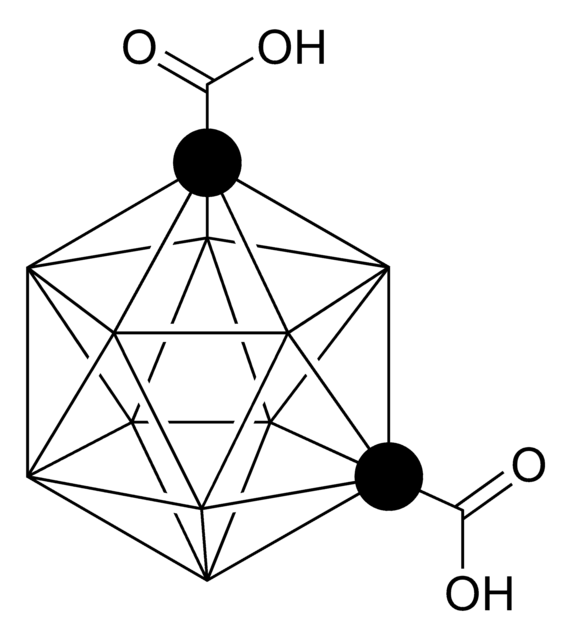
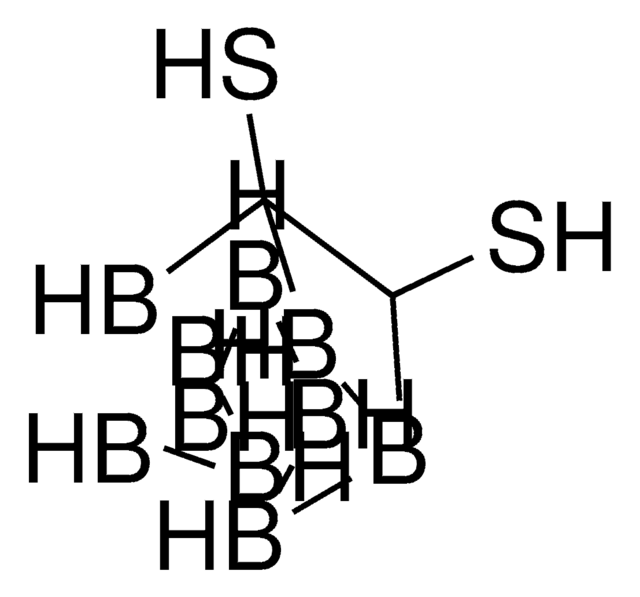
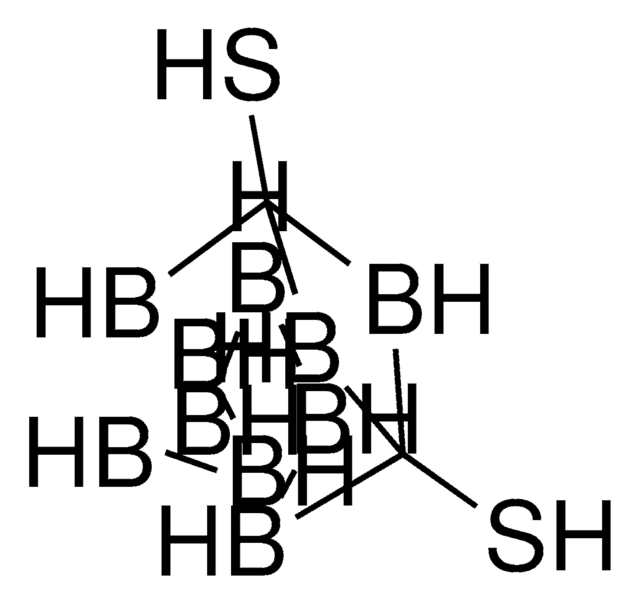

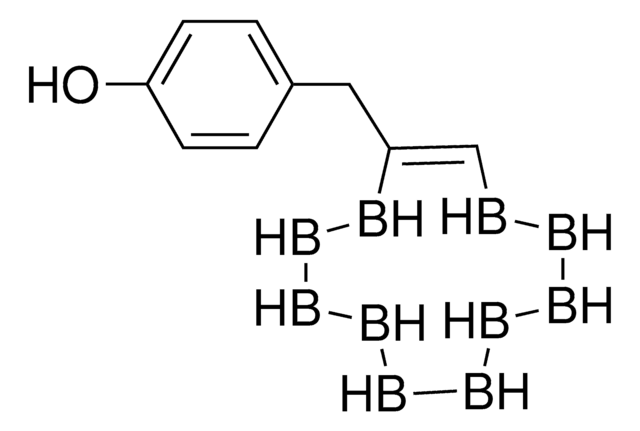
![2,2,6,6-Tetramethyl-4-[1-oxo-6-(triethylammonio)hexylamino]-1-piperidinyloxy bromide 95%](/deepweb/assets/sigmaaldrich/product/structures/398/827/e455c61a-b8fc-4800-9d17-107d734f6aa8/640/e455c61a-b8fc-4800-9d17-107d734f6aa8.png)

